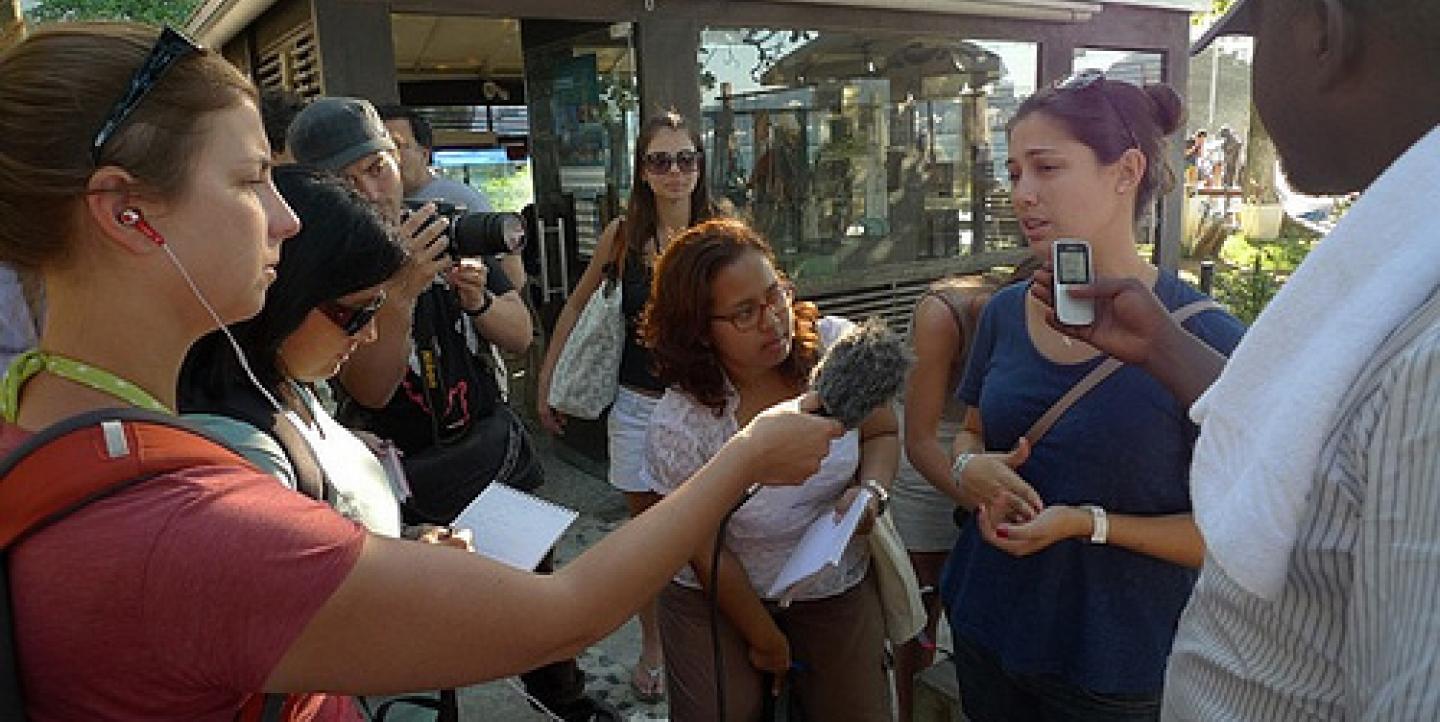“Interviewing is the heart of journalism. Yet too few journalists have ever received education or training in this critical skill,” writes award-winning reporter, feature writer and novelist Chip Scanlan. “For most journalists the only way to learn is on the job, mostly through painful trial and error.”
Scanlan shared his advice for reporters who want to do better interviews in a recent Poynter post. Here are three of his tips:
Get smart.
If you want to flop as an interviewer, fail to prepare. All too often, journalists start an interview armed only with a handful of question scribbled in their notebooks. Take time, however short, to bone up on your subject or the topic you’ll be discussing. When former New York Times reporter Mirta Ojito interviews experts, “I try to know almost as much as they do about their subject, so it seems we are ‘chatting,’ ” she said by email. A. J. Liebling, a legendary writer for The New Yorker, landed an interview with notoriously tight-lipped jockey Willie Shoemaker. He opened with a single question: Why do you ride with one stirrup higher than the other? Impressed by Liebling’s knowledge, Shoemaker opened up.
Craft your questions.
The best questions are open-ended. They begin with “How?” “What?” “Where?” “When?” “Why?” They’re conversations starters and encourage expansive answers that produce an abundance of information needed to produce a complete and accurate story.
Closed-ended questions are more limited but they have an important purpose. Ask them when you need a direct answer: Did you embezzle the company’s money? Closed-ended questions put people on the record.
The worst are conversation stoppers, such as double-barreled (even tripled-barreled) questions. “Why did the campus police use pepper spray on student protesters? Did you give the order?” Double-barreled questions give the subject a choice that allows them to avoid the question they want to ignore and choose the less difficult one.
Craft questions in advance to ensure you ask ones that start conversations rather than halt them in their tracks. Stick to the script, and always ask one question at a time. Don’t be afraid to edit yourself. More than once, I’ve stopped myself in the middle of a double-barreled question and said, “That’s a terrible question. Let me put it another way.”
Establish ground rules.
You’ve just finished a great interview — with a cop, a neighbor, a lawyer — and suddenly the source says, “Oh, but that’s all off the record.”
That’s the time to point out that there’s no such thing as retroactive off the record. Make sure the person you’re interviewing knows the score right away.
When a source wants to go off the record, stop and ask, “What do you mean?” Often a source doesn’t know, especially if this is their first interview. Bill Marimow, who won two Pulitzer Prizes exposing police abuses in Philadelphia, read off the record comments back to his source. Often, he found that many sources changed their minds once they’d heard what they were to be quoted as saying.
Read Scanlan's complete Poynter post here.
This post was excerpted with permission from Poynter Online, IJNet’s partner and the website of the Poynter Institute, is a school serving journalism and democracy for more than 35 years. Poynter offers news and training that fits any schedule, with individual coaching, in-person seminars, online courses, webinars and more.
Photo by James Fahn for Internews Europe, shared on Flickr with a Creative Commons License.


